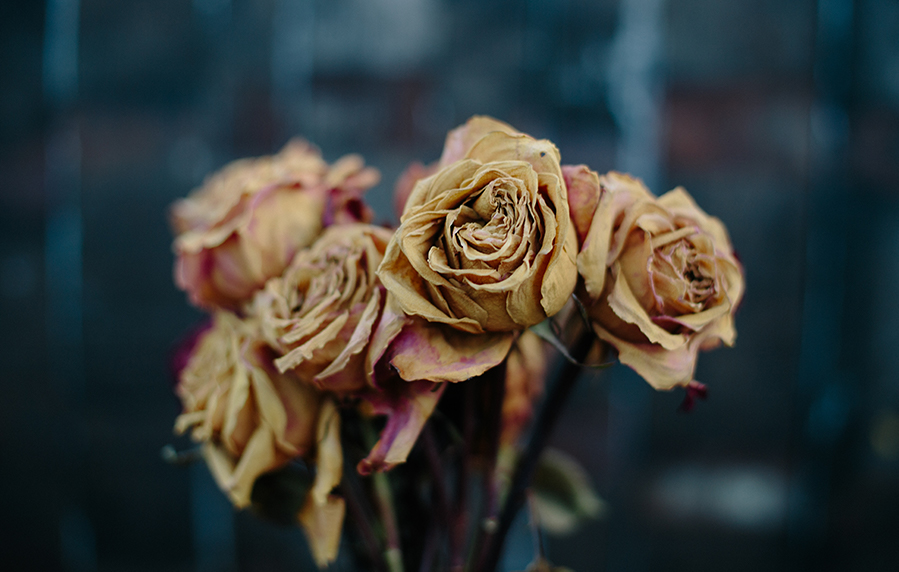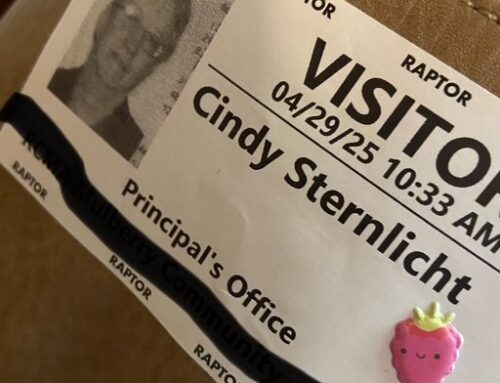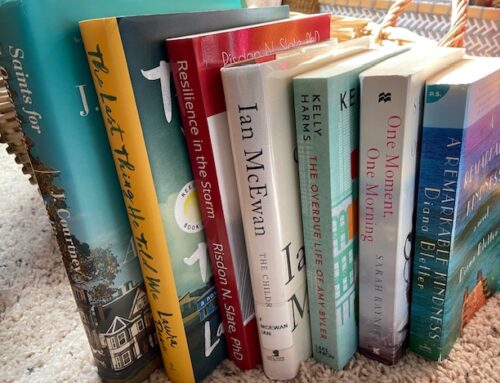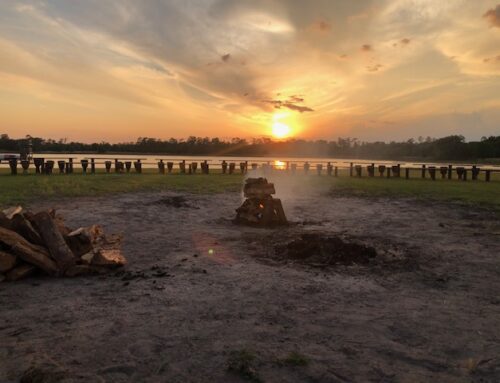It’s day three of staring at the dead flowers on my dining room table. I still find them beautiful – nuanced and layered and wise. They’re making a mess though. Every day more leaves and petals adorn the wood beneath them, and I feel sad when I look at them. They are fully dead.
“It’s time to let them go,” I tell myself. “They started dying long ago – before they even made it here for you to enjoy.”
I grab them from the vase and hover them over the trash can, fingers clenched tight around the stems. I pause, I breathe. I close my eyes. I decide to take a photo of them instead. These were really beautiful flowers, a gift from my daughter, and I cannot put them in the trash.

Flowers die. People and seasons and relationships and ideas also die. This is the way of the world.
Letting go of relationships and ideas and seasons that no longer have life in them can be really fucking hard, but so is trying to maintain the appearance of life. Clutching is also hard. (I am mindfully aware of the pain caused by the loss of a loved one in the physical realm. There are no words to ease that loss on their own. Grief is a deeply individual process, and it is not my intention to minimize or dismiss that pain - the death I am speaking of is not a physical one.)
When it comes to letting go of a relationship, the most comforting thought for me is this: the death doesn’t inherently mean departure. Sometimes letting go means releasing what it was, so it can become something new. Acquaintances become confidants, mentors become allies, friends become lovers, lovers become friends - but I have to open my hand first. And before I can open my hand, I have to be wiling to admit that the thing has died and acknowledge that I’m still clutching it.
My relationship with my longest-standing female friend has died and been reborn several times. It died swiftly after our first few interactions, in which I made all sorts of judgments about her and quickly put her in the “she’s-a-no-for-me” box. And then, through the most frustrating (how I felt about it then) and miraculous (I feel about it now) twist of fate, we ended up in a sexual assault/abuse support group together; and we discovered that trauma had woven its way through our lives in unique and universal ways. We developed a deep level of intimacy, trust, empathy, and respect for each other. And when our time together in that group came to an end, that relationship died and was reborn. Growing in the rich soil of our individual healing and trauma recovery, something new came to life. Then I moved away - another death, another birth. I can’t fathom a time when she won’t be in my life, because our connection is worth the effort that the death and rebirth require. Some relationships are worth figuring out what the new thing will look like - it might be messy, it will likely be clunky. (Side note - An abusive romantic relationship isn’t likely to die and be reborn as a healthy friendship - and a toxic friendship won’t yield a healthy romantic partnership - let it go in grace with finality.)
I've also learned that if the death of a relationship does mean a willing departure, peace fills the vacuum created by the absence. The friendships I had when my kids were young served me well - we had similar values and goals and life circumstances. We went to the same church. It was a beautiful bouquet of activity and camaraderie. These women were exactly what I needed at the time, and I was able to show up for them in the way that was helpful for them, too. And then things changed - circumstances, values, philosophies, my own spiritual framework. My faith deconstruction left us with little in common and in different places - we grew in different directions. The connection had died, and the letting go and moving on opened up the possibility for me to form relationships with the people who would walk with me on the next leg of my journey.
The last decade (and therapy) taught me to hold my ideas loosely, too - it’s the only way I will continue to evolve. I can’t learn anything new if I think I know it all already. I want to hold my ideas loosely enough to acknowledge my own fallibility - “I didn’t know that,” or “I believed *a* to be true and then I learned *b*" or “I changed my mind when I got better data,” or even “I changed my belief on this, because this is what resonates with the person I am now.”
Some ideas need to die, because some ideas are literally killing people. Some societal frameworks need to be questioned, so they can crumble and be rebuilt. Sometimes the entire premise of a thought pattern is misinformed or biased.
I still don’t like throwing away dead flowers - sometimes I think I can let go of a relationship with more ease than I can throw away a bundle of roses. It’s definitely the finality of it for me. Relationships can die and be reborn into something more fulfilling. Bouquets just die.
I never did throw the flowers away that day. I snapped some photos and left them on the ground to become one with the earth again.
I should consider composting.





Such a beautiful contemplative expression of experiences and wisdom. Please keep sharing the beauty and passion of your heart and spirit.
Love your words, Amy.